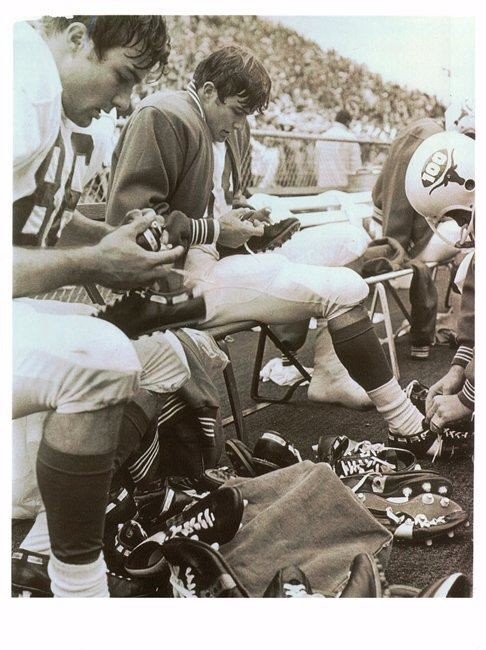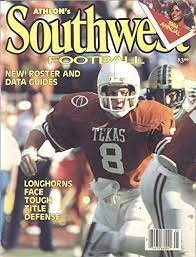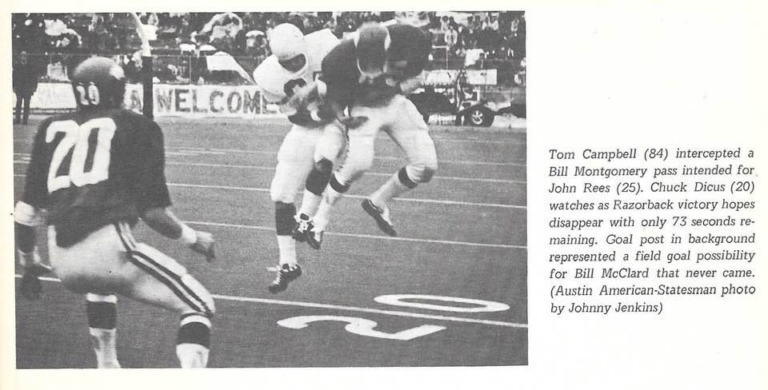Earl Campbell and Randy Willis by Randy Willis
Randy Willis and Earl Campbell

Where shall I begin? My back porch may suffice as my Annual Pickin’ on Christmas Party begins. A friend and guest arrived early with a unique Christmas gift for me, her mother’s homemade Twinkies made with rum.
I thanked her and thought little of the gift until another friend beside me tasted them and said, “These are mine.”

Campbell and Willis

Cheer leaders Campbell and Willis.

Earls Heisman and more from Randy Willis

Willis, Campbell, and Willie Nelson

Randy Willis and Earl Campbell
I tasted one and replied, “Oh my, not hardly.”
My “friend” took the palms of his hands and pressed them on the entire tray of Rum Twinkies. I asked, “When was the last time you washed your hands.”
“Months ago,” he replied.
“You don’t play fair,” I said, “Now I know how you won the Heisman.” I later found out he had just washed his hands.
The football player, who shall remain unnamed, for hijacking my Rum Twinkies reminded me of a trip we made to visit his mother near Tyler. “Paybacks are hell,” he said.
On the way, he shared that his mother made the best hamburgers in Texas, perhaps the world. That night, she made her famed hamburgers for dinner at our request.
Early the following day, while her son slept, I told his mother, “That was the best hamburger I ever tasted. May I have the recipe?”
She smiled politely and gave me the same answer her son had the night before, “No.”
To be fair, those Twinkies were not nearly as good as those hamburgers.
I also had to ask her how the road she lived on got named after her.
She smiled and said, “One of my sons (not said football player) called her one day and said, “Mama, the County Commissioners just name the road in front of your house after you.”
“Son, they don’t need to do that. There’s a bunch of old folks out here who deserve it more than me,” she said.
Then she smiled with a sparkle in her eyes that I will never forget, “But it’s kinda nice when folks call and ask for directions. I just say, “Turn right on Ann Campbell Road. I’m on the left in my home, which my son had built for me.”
She added, “I told my children when their Daddy died, “Don’t be calling me if the county locks you up; I ain’t got any money to get you out of jail. To this day, none of my eleven children have ever been arrested.”
She was a grand lady. She reminded me of my mother, humble, wise, and proud of her kids. I was blessed to meet her and took a photo on her wall of her son that Coach Darrell Royal gave her. I’ve included that photo. I have never published it before.
I vote for the following names to be placed on Darrell K Royal-Texas Memorial Stadium: mothers like Ann Campbell and wives like Edith Royal. But then again, I suspect there might not be enough paint.
✯ ✯ ✯
A week after the photos at my home I got a call from the owner of the Heisman Trophy, “I believe you have something of mine.”
“Yes sir, I do, it’s on my fireplace mantel. When my friends ask “What’s that? and I tell them they all have the same answer, “Yeah, sure.”
“I’m on the way to your office. No, I don’t have any Rum Twinkies.”
About Randy Willis
Randy Willis will occasionally share Longhorn Sports History Stories on the Texas Legacy Support Network website.

About the Author,
Randy Willis is as much at home in the saddle as he is in front of the computer, where he composes his family sagas.
Drawing on his family heritage of explorers, settlers, soldiers, cowboys, and pastors, Randy carries on the tradition of loving the outdoors and sharing it in the adventures he creates for readers of his novels. He is the author of two biographies and his new memoir, To the Best of My Recollection.
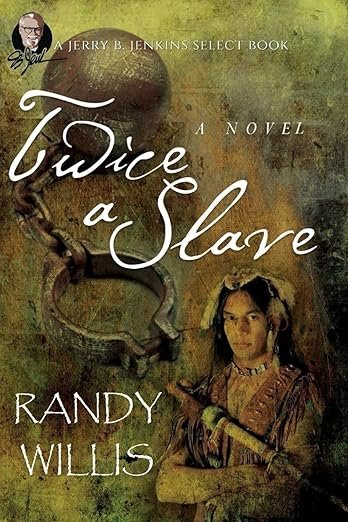
Four bestselling authors’ books, including Randy Willis’s Twice a Slave, have been chosen as a Jerry B. Jenkins Select Book. Jerry Jenkins is a 21-time New York Times bestselling author. He is the author of more than 200 books, with sales of more than 70 million copies of the best-selling Left Behind series.
Twice a Slave has been adapted into a dramatic play by Dr. D. “Pete” Richardson (Associate Professor of Theater at Louisiana Christian University).
He owns Randy Willis Music Publishing (an ASCAP-affiliated music publishing company) and Town Lake Music Publishing, LLC (a BMI-affiliated music publishing company). He is an ASCAP-affiliated songwriter. He is a rancher in the Texas Hill Country.
Randy Willis founded Operation Warm Heart, which feeds and clothes those in need in Central Texas. He was a member of the Board of Directors of Our Mission Possible (empowering at-risk teens to discover their greatness) in Austin, Texas.
Randy Willis was a charter member of the Board of Trustees of the Joseph Willis Institute for Great Awakening Studies at Louisiana College (Louisiana Christian University today).
He graduated from Angleton High School in Angleton, Texas, and Texas State University in San Marcos, Texas. He was a graduate student
For my friend Billy Dale, after reading your post today.
“Your problem Willis is too much Sweet Lucy.”
Coach Carl Davis was the most “colorful.” coach I ever had. “Willis, you’re so clumsy you trip over the center line” [on the basketball court]. And “Willis, you run real fast, your problem is you run too long in one place.” And, “Willis, the problem with you is you drink too much “Sweet Lucy” (aka water).
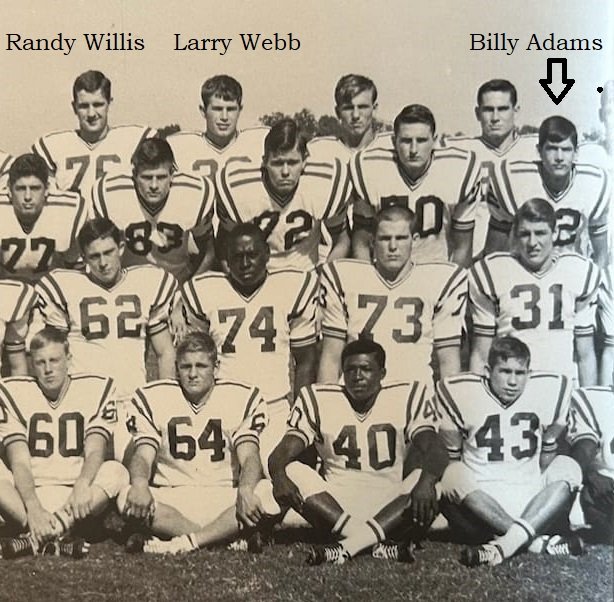
Larry Webb and Randy Willis
My water consumption was also a problem with Head Coach Fred Johnson. He took it as insubordination. It began during two-a-day football practices. We were allowed an 8-ounce empty Coke bottle filled with water halfway through each practice.
By then, the water was hot from being exposed to the sun. No concern, though, because he also insisted we take salt tablets. In fairness to our coaches, this was the protocol almost everywhere.
From antiquity to the late 1960s, athletes were advised not to drink during exercise since fluid ingestion was believed to impair athletic performance. Water would slow you down.
Publications soon began to warn of the dangers of dehydration, citing illnesses and deaths. I first heard about the shift from salt tablets to sports drinks in the early ’70s. By then, I was in college.
Later, another coach and friend would teach me fairness and respect for others like my Dad and Coach Frasier had. His name was Darrell Royal. He once said, “The real make of a man is how he treats people who can do nothing for him.”
The first person to recruit me to play college football was Coach Burley Bearden, head coach at the University of Texas at Arlington. Coach Bearden was told about me by Carrol Brister, a football scout from Arcadia, Texas. Arcadia was also the home of my brother Buddy. He and Buddy were friends.
Coach Bearden met my Dad and me at the Taco House in Angleton. The greasy spoon restaurant was on Highway 35, with a jukebox constantly playing Roy Orbison’s hits. Daddy and I ate breakfast there often. The price was low enough, and the food was not half bad. And we both liked Roy Orbison—although three songs in a row was enough. I think of that every time I watch Pretty Woman on TV, which has only been two or three times.
Coach Bearden began,“Coach Fred Johnson will not recommend you.” That night, he offered me a scholarship, so whatever Coach Johnson told him was not a deal-breaker. And I’m sure my brother Buddy informed the scout I was no longer on Coach Johnson’s Christmas card list.

But it made me wonder why the next school recruited me, knowing Coach Johnson would not endorse me. I soon discovered few other colleges had heard of me. They became aware of me by watching films of games provided by Coach Johnson that showed how great my teammate Larry Webb was. Larry was the star linebacker and fullback with all the awards, and he deserved all of them.
Larry was also the linebacker lined up just a few feet behind me, an unheralded defensive tackle. I had no awards, but I was 6’ 5 1/2” and 210 pounds and almost impossible to miss on film if you were scouting Larry.
Contrary to Coach Davis’s joke, he later said I was fast for a lineman, whatever that meant. I learned much later that the great Texas college football coaches and recruiters knew more about the integrity of high school coaches than they did the players they were recruiting.
They would go the extra mile to consider a high school player recommended by a coach they respected and trusted. I did not have that advantage, but I had Larry Webb lined up behind me on film.
✯ ✯ ✯
I first watched The University of Texas play football at my friend Billy Adam’s home. Billy Adam’s family owned a Color TV. I had never seen one. That was a big deal then; ours was black and white. That night, I became a fan of Duke Carlisle. He was the first college football player I ever became a fan. That night, I also became a fan of University of Texas football.
I was only thirteen.
✯ ✯ ✯
Several years later, during my junior year of high school in the Fall of 1966, Coach Carl Davis walked into the Angleton gym while we practiced basketball.
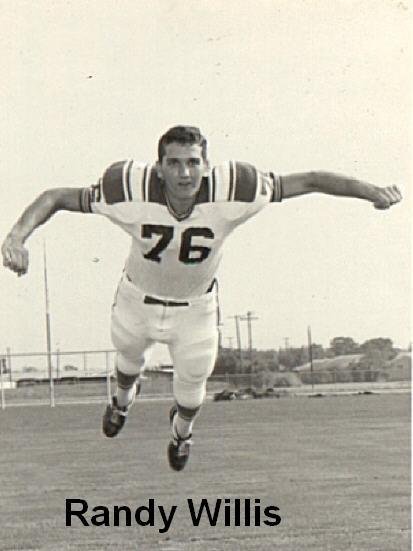
Coach Davis announced over the weekend that he had seen the best high school running back he had ever seen during the state playoffs. His name was Steve Worster from Bridge City. Bridge City had beaten Conroe 41-17 in the 3A Bi-district game. Angleton was a 3A school, too.
If we had won our district, we would have played Bridge City. Back then, Texas had only four classifications in high school sports, with 4A being the biggest.
Coach Davis was not the only coach in the stands during that game. We soon learned that Darrell K Royal, Head Football Coach of The University of Texas, was as impressed by Worster as Carl Davis.
I followed Worster’s next games in the news to see if the Conroe game was a fluke. Bridge City next handled Clear Creek, 36-7, before defeating San Marcos, 28-7.
I also knew that would soon end when Bridge City faced the top-ranked team in the state, unbeaten McKinney. They had the best defense in the state and shut teams down all year. During the playoffs, McKinney had given up only seven points in three games.
Steve Worster proved unstoppable and carried the ball 36 times for 249 yards and three touchdowns, leading his team to an impressive 30-6 win over previously unbeaten McKinney.
Now, the stage was set to see which of the more than 75 colleges offers nationwide he would accept. Because of Worster’s choice and Duke Carlisle, I became the biggest Texas Longhorn fan this side of the Rio Grande.
✯ ✯ ✯
A year later, Leon Manley recruited Larry Webb and me to play football at the University of Texas on the same day during a visit to Angleton High School. Larry and I were friends. We duck hunted and fished together in the rice fields surrounding my parent’s farmhouse on 40 acres and the Brazoria County Saltgrass Country on weekends.
Coach Manley and Angleton High School counselor John Craven told me I would need to take additional algebra courses that summer to be admitted to the University of Texas. They had it all planned out. I could take these courses at Alvin Junior College, only 20 miles away. UT would accept the credits from Alvin Junior College. The college was state-supported, so the tuition was reasonable. Coach Fred Johnson was not in the meeting.
I had no clue why they recruited me at the time, knowing that Coach Royal sought high school coaches’ recommendations. And knowing Johnson would never recommend me.
✯ ✯ ✯
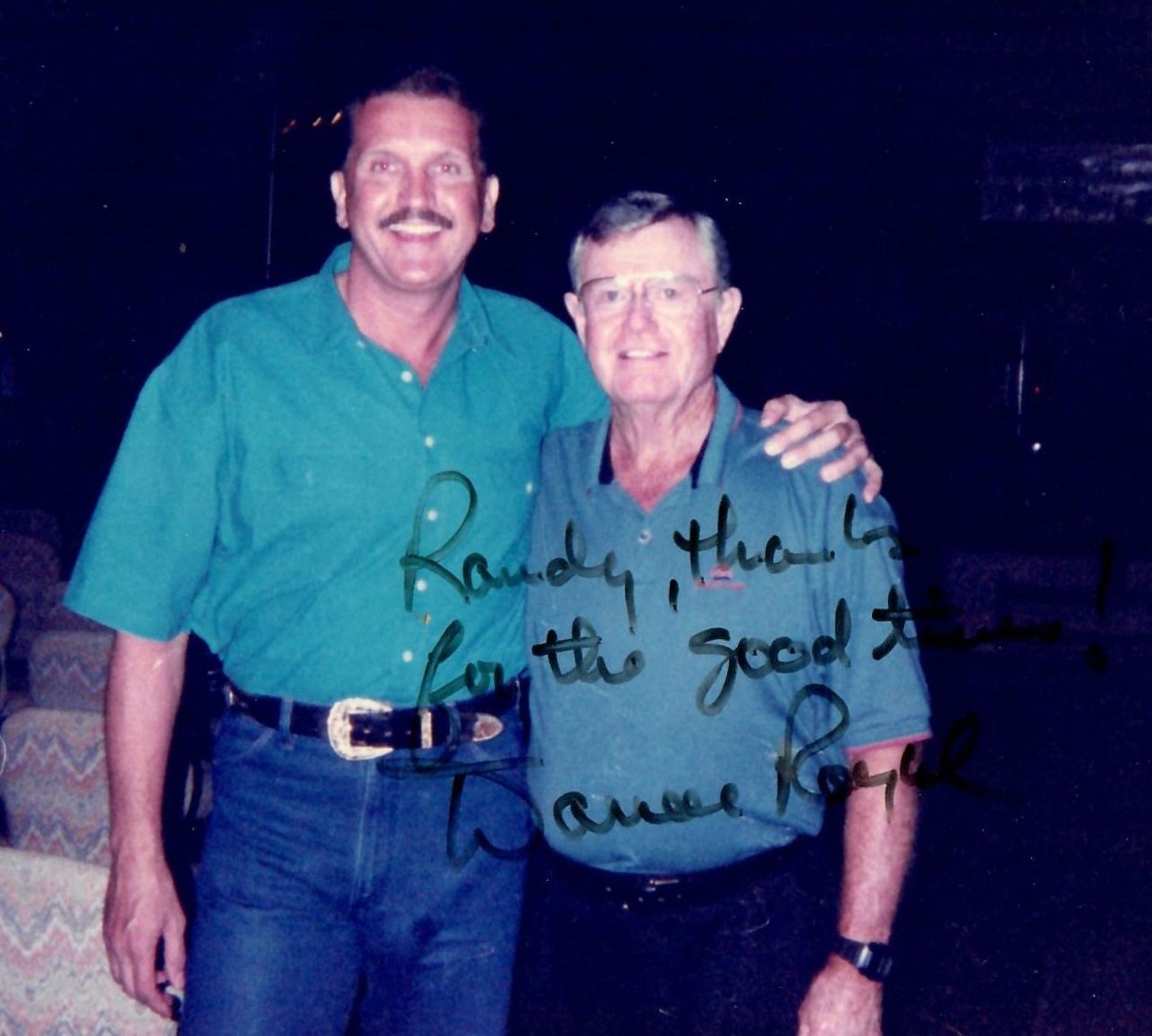
Randy Willis and Coach Royal

Bud Brigham (Executive Producer of the movie My All-American about Freddie Steinmark) and his wife, Anne Brigham, are on the left. UT Football legends Billy Dale and Tom Campbell are in the center. Randy Willis and.jpg

Coach Royal, Randy Willis, James Street, Doug English, and……

Earl Campbell, Bum Phillips, Tony Dorsett, ??? and Randy Willis.
A decade later, in 1978, Texas Monthly published a story about Coach Johnson entitled “The Great Rockdale Mutiny.”
The article reads in part, “Fred Johnson has been a high school football coach, and on the record, a very good one. Eighteen of those years, taking whatever talent has come to him in towns like Mission, Kerrville, Gonzales, Angleton,and Rockdale, he has turned in winning seasons.
Last year, Johnson’s teams won state championships in football and track. This year, he is out of a job.”
The article continued: “But this was no ordinary coaching ouster. Johnson resigned after every team member signed a petition asking for his dismissal, and the resulting upheaval, replete with overtones of ideology and class, has threatened to tear this Central Texas town apart.”
Johnson was quoted in the article as saying, “Players learn the willingness to give their time, accept strict rules, and subordinate themselves for the good of the team. Some don’t and can’t accept those things and become failures.”
His words rang familiar. Ten years before the Rockdale High School Mutiny, Fred Johnson insisted I meet in his office to discuss my insubordination. He explained that he had done his best with me but had resigned to the fact that he had failed and I would always be a loser. His words did not discourage me but had the opposite effect.
✯ ✯ ✯
Larry Webb and I visited Austin and the UT campus unofficially. Larry said, “You want to meet Steve Wooster? He’s a roommate with Jay Cormier from Freeport.” Jay played high school football at Brazosport, just a few minutes south of Angleton.
“No thanks,” I said, “I’ve got to meet a friend.” She was a girl from Austin named Cindy Barefield who often visited her mother in Angleton. We had a couple dates in Angleton, but Austin was a four-hour drive. I could not afford 30 cents a gallon for gas, and my tires were always threadbare.
When Larry and I met later, he said, “You should have come and met Worster.
I responded, “Let’s see Larry, have lunch with my beautiful date, or meet Steve Wooster.” When I got home the next day, I had second thoughts; I could have seen her again the next time she visited Angleton. I still regret that decision.
The truth is it had nothing to do with her. I was too shy and intimidated to meet my high school football idol. “Big Woo,” Steve Worster soon became the cornerstone of the Texas Longhorn’s famed Wishbone offense. I never met him. He died on August 13, 2022. I’m still a fan.
✯ ✯ ✯
I also never took the needed math classes due to my parents’ divorce two months after Coach Manley’s visit. In those days, divorce was a huge deal. No one in my family had ever divorced in our known family history. I was devastated when I saw my mother’s tears. They had been married for 20 years.
✯ ✯ ✯
After college, Larry Webb and I stayed in touch until about a decade before his tragic death. I suddenly lost track of him. After college, he worked with Pelican’s Wharf Restaurant in Austin and later in San Antonio. I ate at both several times to visit him.
Larry played on two of UT’s National Champion football teams. Larry was a better player than me. Those teams had more talent than I’d ever seen. I would have never started, but the bench was not a bad seat to watch the games, and what an honor it would have been, not to mention the financial advantages of a scholarship. I had no money.
✯ ✯ ✯
Larry Webb died on February 3, 2019. He’d been suffering for four or five years from Chronic traumatic encephalopathy (CTE). CTE is a progressive and fatal brain disease associated with repeated traumatic brain injuries (TBIs), including concussions and repeated blows to the head. He ultimately died of Renal Cell Carcinoma while in hospice care. I miss him.
Larry’s story is at https://texas-lsn.squarespace.com/larry-webb-2019
Photos below – Larry signing with Texas, playing high school football, diagnosed with CTE, and



✯ ✯ ✯
To the Best of My Recollection
Edith Royals passing
https://texas-lsn.squarespace.com/edithroyal/obit
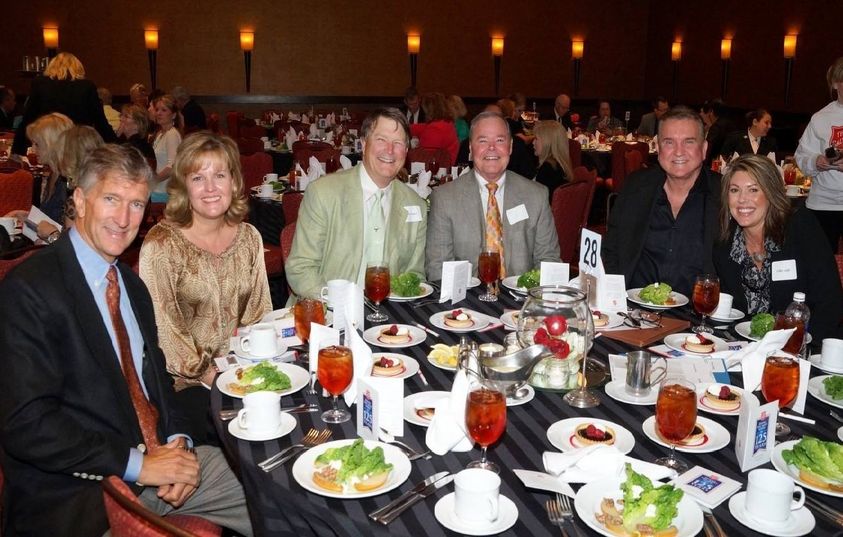
Bud Brigham (Executive Producer of the movie My All-American about Freddie Steinmark) and his wife, Anne Brigham, are on the left. UT Football legends Billy Dale and Tom Campbell are in the center. Randy Willis and
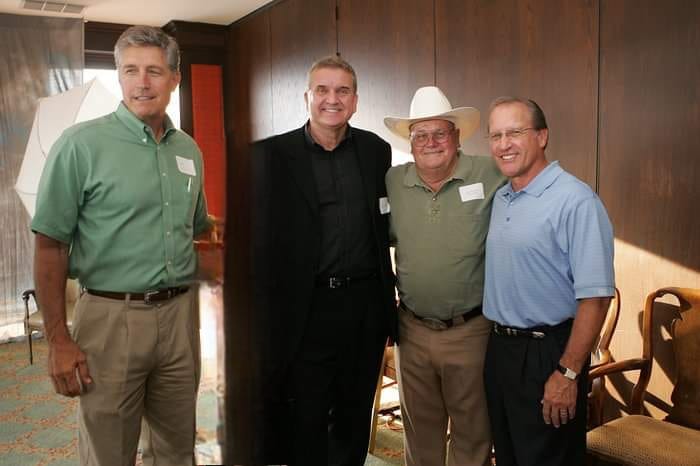
Doug Englis, Randy Willis, Coach Coach Wade Phillips, James Stree
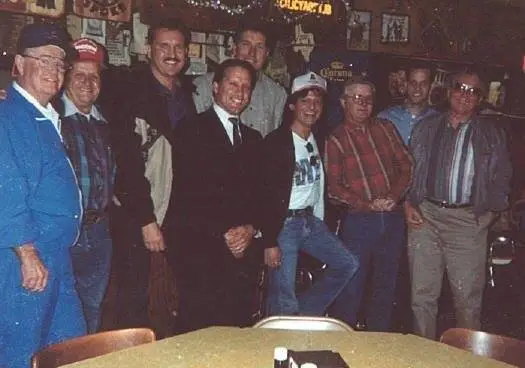
Darrell Royal, James White, Randy Willis, Jame Street, Doug English, Johnny Rodriquez, I don’t know, don’t know, Sammy Allred.
